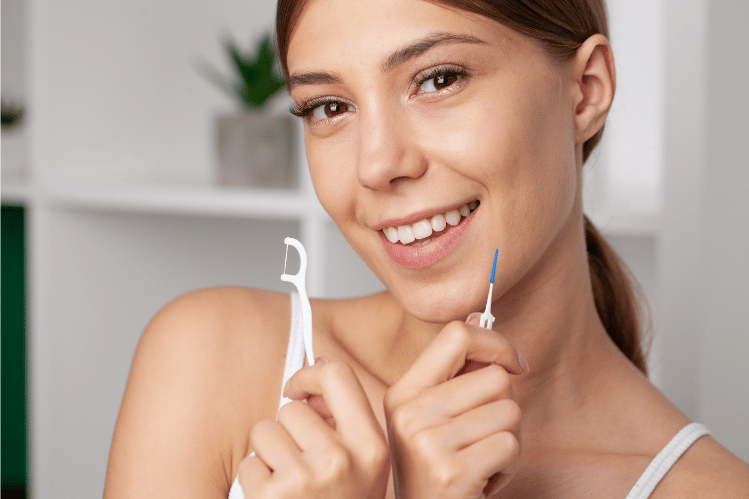
Oral health is an essential aspect of our overall well-being. Poor oral hygiene can lead to a range of dental problems, including tooth decay, gum disease, and bad breath. While brushing your teeth twice a day is a crucial step towards maintaining good oral health, it's not enough. Flossing is just as crucial, if not more, for optimal oral health. In this blog, we'll explore why flossing is so important and how you can make it a part of your daily routine.
What is Flossing?
Flossing is a technique used to clean the tight spaces between your teeth and gums, where your toothbrush cannot reach. It involves using a thin, flexible thread made of nylon or plastic to remove food particles and plaque from the teeth.
Why is Flossing Important?
Flossing is crucial for several reasons. Here are some of the most important ones:
Prevents Gum Disease
Gum disease is a prevalent dental problem that affects millions of people worldwide. It starts with the accumulation of plaque on the teeth, which can eventually lead to inflammation of the gums. Flossing regularly helps remove plaque and prevent gum disease.
Reduces Bad Breath
Bad breath, also known as halitosis, can be caused by poor oral hygiene, among other factors. When food particles are left between the teeth, they start to decay, causing bad breath. Flossing helps remove these food particles and reduces bad breath.
Protects Teeth
Flossing helps remove plaque and bacteria from between the teeth, preventing them from causing tooth decay. Tooth decay is a significant dental problem that can lead to tooth loss if left untreated.
Saves Money
Preventive dental care, such as flossing, can help you save money in the long run. By preventing dental problems, you'll avoid costly dental procedures such as fillings, root canals, and extractions.
How to Floss?
- lossing is a simple technique that can be incorporated into your daily oral hygiene routine. Here are some steps to follow:
- Use about 18 inches of floss and wind most of it around one of your middle fingers.
- Hold the floss tightly between your thumbs and forefingers and gently insert it between your teeth.
- Move the floss up and down against the side of each tooth, making sure you go below the gum line.
- Use a clean section of floss for each tooth.
- Don't forget to floss the backside of your last tooth.
Conclusion
Flossing is an essential part of maintaining good oral hygiene. It helps prevent gum disease, reduces bad breath, protects teeth, and saves money. Incorporating flossing into your daily routine is simple and can make a significant difference in your oral health. Remember to floss at least once a day, and don't hesitate to consult your dentist if you have any questions or concerns.
FAQs
You should floss at least once a day. Ideally, you should floss after every meal to remove any food particles that are stuck between your teeth.
Bleeding gums can be a sign of gum disease or an indication that you're flossing too hard. If your gums bleed when you floss, it's essential to schedule an appointment with your dentist to determine the cause.
Water flossers are a great alternative to traditional floss for people who have difficulty flossing. They use a stream of water to remove food particles and plaque from between the teeth. However, they should not be used as a substitute for brushing and flossing.
There are several types of floss available, including waxed, unwaxed, flavored, and unflavored. The type of floss you use is a matter of personal preference. It's essential to choose a floss that you're comfortable using, so you're more likely to floss regularly.
Flossing done correctly should not damage your teeth. However, if you're flossing too hard or using a flossing technique that is too aggressive, it could cause damage. Always floss gently and follow the correct technique to avoid any damage.



 Australia
Australia New Zealand
New Zealand Malaysia
Malaysia English
English Portuguese
Portuguese English
English English
English English
English English
English English
English Canada
Canada